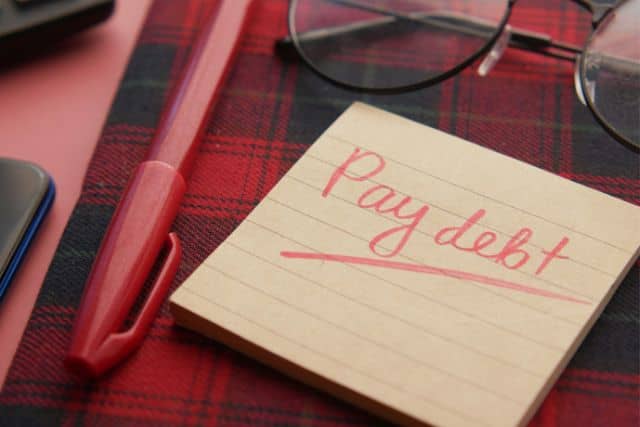
How to Respond to a Debt Collector Like a Pro
Getting contacted by a debt collector is an alarming and unpleasant experience. Many people panic when they answer the phone or receive a letter and are confronted with the idea that they may owe a stranger a significant sum of money.
While debt is hard to deal with, communicating with collectors is a nuanced process. It is important to know your rights and understand how best to proceed.
In the paragraphs that follow, we provide an overview of what you should do when a debt collection agency contacts you.
What Should You Do When a Debt Collector Contacts You?
In the age of phone scams, it is very important to be cautious any time a stranger attempts to make contact with you.
If someone calls you claiming that they are trying to collect the debt you owe, it is a good idea to verify their claims before you do anything else.
You can do this in the following ways:
- Request validation: Ask the debt collector to provide written validation of the debt, including details such as the original creditor, the amount owed, and any relevant account numbers.
- Review documentation: Carefully examine any documentation provided by the debt collector, including statements, contracts, or agreements, to ensure accuracy and legitimacy.
- Check credit report: Verify the debt’s presence on your credit report from all major credit bureaus, comparing the information provided by the debt collector with what is reported to confirm consistency and accuracy.
Keep in mind that even if the debt is yours, that does not necessarily mean that you need to pay it. Debt usually has a statute of limitations.
In Mississippi, it is three years in most cases. This means that if a collection agency contacts you about something you owe that has expired, you can ignore them.
However, you should keep in mind that the statute of limitations period is not based on when you acquired the debt but rather on the last time you paid or made the promise to pay it. This means that if the debt collector contacts you for an old debt and you agree to pay it could potentially reset the statute of limitations period.
I’m Willing to Pay. What Should I Do?
Even in situations where you are willing to pay, you most likely will not be on the hook for the full amount owed. The collector may pressure you to make the full payment—in most cases that is certainly their starting point.
However, you need to understand where they are coming from. Their agency most likely acquired your debt for literal pennies on the dollar. This means that they have a lot of room to negotiate.
It isn’t at all uncommon for collectors to settle on amounts significantly lower than what you actually owe.
How to Dispute the Debt
It is very alarming to be pressured to pay a debt that does not belong to you. While you can ask the collector to stop contacting you, this approach very rarely produces results in the absence of further action.
Here are some steps you can take to dispute a debt that does not belong to you or is being inaccurately presented:
Receive Initial Contact
When a debt collector contacts you regarding a debt, they must provide you with certain information, including the name of the creditor and the amount owed. This contact typically occurs through a collection letter or phone call.
Verify Debt and Review Rights
Upon receiving the initial contact, you have the right to dispute the debt if you believe there is an error or if you do not owe the debt. Within 30 days of the first contact, you can request validation of the debt in writing.
During this time, familiarize yourself with your rights under the Fair Debt Collection Practices Act (FDCPA), which prohibits debt collectors from using deceptive practices or harassing behavior.
Dispute the Debt in Writing
If you believe the debt is not valid or if there are discrepancies, dispute it in writing within the 30-day window. Your written dispute should include a request for validation of the debt and an explanation of why you dispute it.
Once the debt collector receives your dispute, they must cease collection efforts until they provide verification of the debt.
Monitor Communication
After disputing the debt, monitor any further communication from the debt collector. They are prohibited from contacting you further unless they provide validation of the debt.
If the debt collector continues to contact you without providing verification, they may be violating the FDCPA, and you have the right to take legal action.
Seek Legal Assistance if Necessary
If the debt collector persists in their collection efforts without verifying the debt or if they engage in harassing or deceptive practices, you may consider seeking legal assistance.
You have the right to file a complaint with the Consumer Financial Protection Bureau (CFPB) and pursue legal action against the debt collector for violating your consumer rights under the FDCPA.
If you need help filing a lawsuit or simply dealing with creditors, we understand. Contact Ware Law Firm today for a case review.




